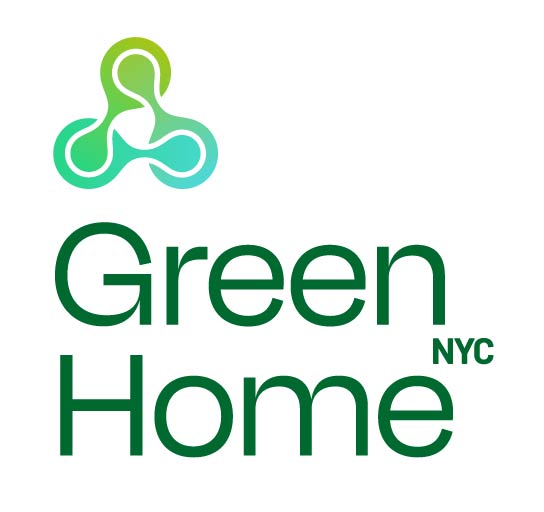FORUM NOTES
Job Search Sites, Organizations, Networking, and Tips: www.energycentral.com — Energy and power industry website with numerous job listings under www.energycentraljobs.com www.energyusernews.com — More dedicated to industrial/commercial, with job listings www.sustainablebusiness.com — Seems to have a fairly extensive job listing http://www.buildinggreen.com — Publishers of Environmental Building News, Building Green and GreenSpec, all industry bibles. http://www.usajobs.gov — listing of all federal job listings http://www.nyrag.org — NY Regional Association of Grantmakers has links to philanthropic orgs The New York Times Sunday Classified — Spend the 4 bucks, read it cover to cover for a few weeks; you’ll be surprised how many sustainable jobs are not listed in the categories you would look in. Just Google “sustainable jobs†and you’ll get buried. www.GreenHomeNYC.org — You’re here tonight, aren’t you? www.usgbc.org — US Green Building Council www.nesea.org — The Northeast sustainable Energy Association (GreenHomeNYC is the New York City chapter) has at least one great networking conference a year. www.affordablecomfort.org — great for small residential building science practitioners who want to learn a lot in a week’s time. At least one conference a year. www.greendrinks.org NYC and Brooklyn divisions that offer good networking www.nyserda.org They have more programs than you can shake a stick at. Learn them. Use them. www.energystar.gov Really good appliance and electric efficiency site www.buildingamerica.gov Research from Department of Energy and Building America Teams www.huduser.org Amazing amount of info on HUD and Housing research undertaken by HUD www.pathnet.org HUD and National Association of Homebuilders (NAHB) website on housing innovation and technology www.nyc.gov With a little navigating, you’ll find the NYC government job listings www.aceee.org American Council for an Energy Efficient Economy www.need.org National Energy Education Development Project Resume/Job Hunting General Tips:
- Your resume is an advertisement for you; make it interesting and to the point
- Resumes: Small margins, reduced white space, bullet or paragraph information
- Tailor your resume to each job listing
- Open your resume with what your experience or employment objective is
- Describe your relevant experience first, even if it’s volunteer work
- Show responsible jobs, like making money through college to pay bills
- We know you went to a good school, but it and your GPA are not the most important things
- Relevant school jobs/activities that show interest and responsibility are important
- Use active verbs in each job description to denote what you did: managed, supervised, etc.
- Five page resumes are for Nobel laureates and pompous a-holes; 1 to 2 pager is plenty
- Get a mentor, or a few of them, in different fields of your interest
- Cover letter is as key as resume; describe your interests and knowledge of the company
- Research the company before you apply and/or interview
- Know the company before you apply; display your knowledge in cover letter and interview
- Volunteer for good organizations, like GreenHomeNYC!
- Read all of the trade rags, particularly industry-wide ones that do not interest you
- Become proficient in a niche or two, and have a good understanding of associated niches
- Be assertive if you want a job, the squeaky wheel DOES get the grease
- Don’t pester — there are plenty of pests but not dedicated employees
- If you want to work for a specific company and you have some skills but not all, try to create a niche by multitasking for the company to start
- If you are interviewing, ask what the company dress code/style is; overdressing or underdressing
- Use spell check and have someone (or two) proof your resume; an error on YOUR RESUME shows lack of attention to detail and disinterest in writing quality
- Offer references and writing samples; don’t include them unless they are asked for
- Have good writing samples at your fingertips if asked: small, medium, detailed
- Ask people you want to work for/with — “What do you do?â€
- Volunteer to write for publications — they always need writers, and you’re published.
- Don’t be intimidated by “experts†— Like all people there are good and bad ones
- Join professional organizations that are associated with the field you’re in: AIA, AEE, ASHRAE, APA…
- Good technical, practical experience and knowledge in your field always impresses
- Writing, math, reading comprehension, conversational and LISTENING skills are all important.
- Did I say Listening skills are important? Guys, don’t over-demonstrate your gender.
- Presentation skills/public speaking skills can be very important.
- Are you interested about expanding your knowledge? Demonstrate it.
SPEAKER BIOS
F.L. Andrew Padian, Steven Winter Associates (SWA). Andy has 25 years experience in the for-profit, non-profit, government, and acedemic fields in energy efficiency, policy, engineering, and program mangement aspects of high performance buildings. He has been with SWA for over 6 years; SWA is a leading high perfomance building engineering and architecture firm with 33 years in business. Sharon Griffith, NYSERDA. Sharon is a Project Manager with NYSERDA’s NYC office, and is responsible for local and regional residential energy efficiency programs. Prior to working for NYSERDA, Ms. Griffith was a field inspector for the NYS Weatherization Assistance Program. She is a nationally known speaker on energy efficiency and high performance buildings. When: Wednesday, July 20th, 6:30-8pm Where: Kimball Lounge, NYU – 246 Greene Street
